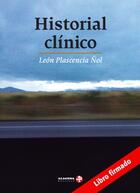It's a way of putting it. There's something artificial about it. I write about my mother. […] My mother's death turned my world upside down: I saw it turn into a bubble covered in knives, an ashamed predator. And I became a ghost learning to walk again,” writes León Plascencia Ñol at the beginning of Historial Médico (Clinical History). Throughout these pages, poetry adopts numerous strategies to address its electrifying subject matter: testimony and notes, list and photo album, and even diagnosis, pharmacopoeia, and death certificate. The well-tempered song is replaced by feverish vision, and poetry becomes delirium: once the furrow is opened, a metaphor not only for verse but for the wound, it distances itself from it, a critical and focused distance. There is no other way, no more and no less, to plow in the void.
Historia Médico (Clinical History) not only represents Plasce...read more







